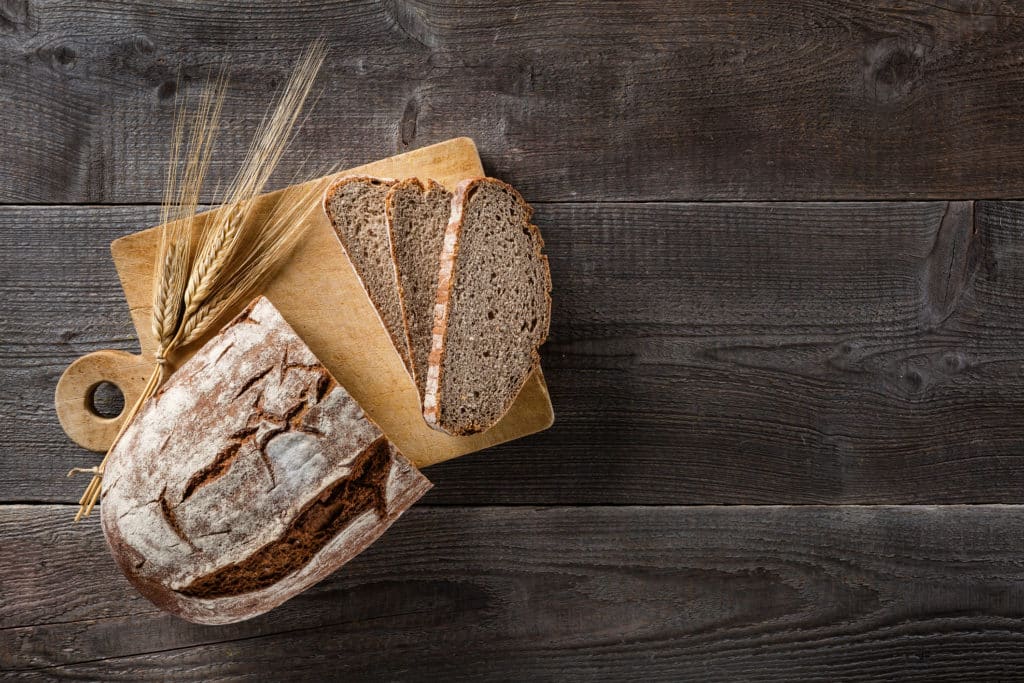This is the most popular myth about weight gain
By Rocío Río de la Loza, Health Coach
Wheat has been consumed for centuries around the globe. Along with maize and rice, wheat is a staple food for over 4000 million people.[1]The Food and Agriculture Organization of the United Nations(FAO) estimates that “wheat, in the form of bread, provides more nutrients to the world population than any other single food source”.[2]
This means that wheat, particularly prepared as bread, has been enjoyed worldwide for thousands of years. Nonetheless, it has been recently suggested that the consumption of wheat and wheat-based products such as bread is a cause for obesity and overweight.
However, the truth is that whole cereal grains like wheat convey an array of health benefits and are recommended by many nutrition authorities as part of a balanced diet, including the U.S. Departments of Health and Human Services(HHS) and Agriculture(USDA), responsible of developing the Dietary Guidelines for Americans.[3]
Wheat does not make you put on weight
Does Wheat Makes us Fat and Sick?[4] Scientists from Maastricht University[5] in conjunction with Rothamsted Research[6], British based agricultural research station, conducted an investigation to dig deep into the matter and actually found that the answer to this mythical question is a clear NO. Wheat does not make you fat and sick!
According to their findings, there is no scientific data that justifies a negative opinion on whole wheat products such as whole wheat bread. The evidence shows that within the general population the consumption of whole wheat cannot be linked to an increased risk for obesity. In fact, when prepared in traditional ways and eaten in the recommended quantities whole wheat and whole wheat bread reduce the risk for heart disease and type 2 diabetes, as well as support maintaining a healthy body weight in a long term.
Eat bread and stay thin
It is common to see weight loss programs that exclude bread from their meal plan. However, bread can be part of a varied and balanced diet, and as we have explained, bread can help you maintain a healthy weight.
Just introducing wholemeal bread and upping your intake of whole fruits (no juice) and vegetables can have a significant impact on your body weight. This was the case for women who had their babies and were trying to lose weight after the partum in a pilot trial.[7]These simple changes helped them regain their pre-pregnancy shape more quickly than the ones who didn’t.
Health benefits of eating bread
Luckily, there is a wide range of breads to choose from. Whole wheat bread is packed with complex B vitamins, essential minerals such as iron, dietary fiber, phytosterols, and phytonutrients that lower bad cholesterol, protect against most popular modern chronic diseases, promote good digestion, and feed beneficial gut microflora.
Include 5 to 6 servings of cereal grain foods throughout your day and aim to make at least half of them from whole grains. People who consume more whole grains tend to have a higher intake of dietary fiber, exercise more, smoke less, and have a healthier lifestyle in general.[8]
Examples of popular cereal grain foods:white bread, pasta, wheat tortillas, crackers, rice, porridge, and cous cous.
Who should avoid bread?
Wheat and wheat based products such as bread and cakes should not be avoided unless the person has been diagnosed with wheat sensitivities or celiac disease. Celiac disease affects only 1% of healthy people in the United States.[9]
In his latest book, Eat Wheat[10], packed with scientific research, Dr. John Douillard, known for his wellness expertise and Aryurveda practice, explains how you can bring back bread and milk back into your diet. This book is a must read if you have fallen in to the gluten-free trend for no real reason!
[1]http://www.fao.org/docrep/u8480e/u8480e07.htm
[2]http://www.fao.org/docrep/006/y4011e/y4011e0w.htm
[3]https://health.gov/dietaryguidelines/2015/qanda.asp#guidelines-q3
[4]http://www.sciencedirect.com/science/article/pii/S0733521013000969
[5]https://www.maastrichtuniversity.nl/
[6]http://www.rothamsted.ac.uk/about
[7]https://nutritionj.biomedcentral.com/articles/10.1186/1475-2891-6-21
[8]https://www.ncbi.nlm.nih.gov/pubmed/18005489
[9]https://www.cureceliacdisease.org/wp-content/uploads/341_CDCFactSheets8_FactsFigures.pdf
[10]http://eatwheat.lifespa.com/

